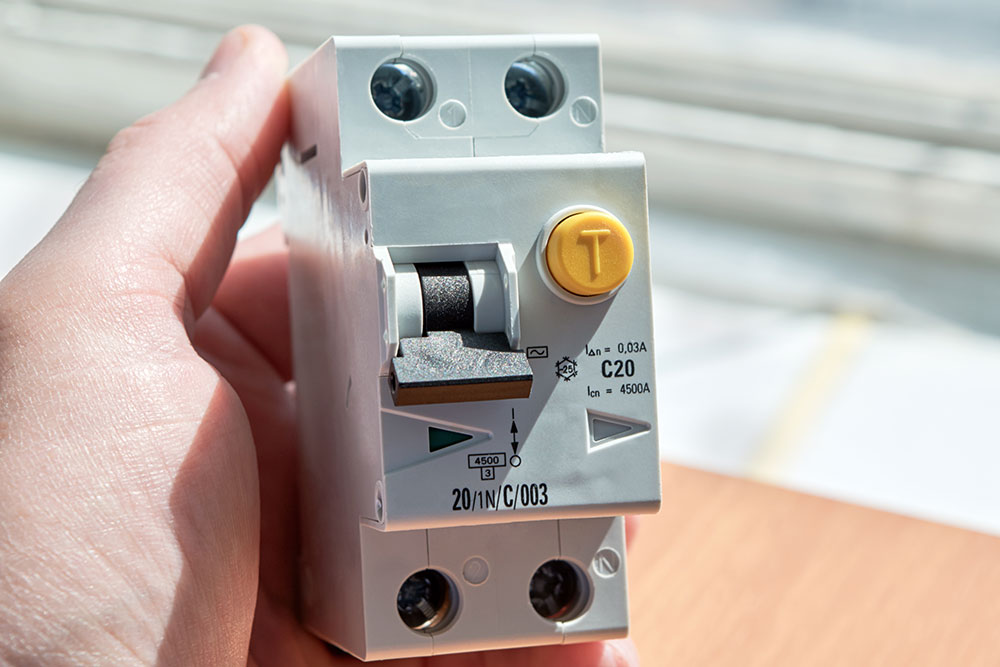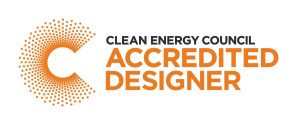The right maintenance steps and precautionary measures can significantly reduce your risk of experiencing an electrical fire or electrical shock.
In our guide to understanding electrical safety in your Perth home, we’ll cover electrical safety tips, the importance of RCD’s, the dangers of electrical faults, and other steps to promote electrical efficiency and safety.
Tips for Creating a Safe Electrical Environment
Here are tips for ensuring a safe electrical environment in your home:
- Use safety covers over electrical outlets
- Unplug electrical devices when not in use
- Maintain distance between electrical appliances and water sources
- Have RCDs (Residual Current Devices) installed throughout your home
- Keep cords and wires neat and out of reach to avoid tripping hazards
- Regularly inspect outlets, extension cords, and electrical appliances for signs of damage
- Do not overload powerpoints with power boards
- Make sure your home’s wiring is up to code and have a licensed electrician replace any outdated wiring if needed
- Do not daisy-chain multiple extension cords
- Make sure the power rating of your appliances is within the capacity of your electrical circuits
- Do not use multiple high-powered appliances on the same circuit
- Adhere to manufacturer’s guidelines regarding the usage of electrical appliances and equipment
- Opt for powerboards with built-in protection against overloading and only use them as a temporary measure
- Always keep the lint cleaned out of your dryer
- Keep exhaust fans clean and free of lint and dust
The Dangers of Electrical Faults
Electrical faults can occur due to damage, improper installation of wiring, wear and tear, or overloading a circuit.
When an exposed wire still has current running through it, it is considered a live wire. If you, your family, or a pet come into contact with any part of the live wire, it can cause serious injury or fatality.
Exposed wires can’t conduct current properly, leaving them susceptible to overheating. Left unchecked, this excessive heat can lead to an explosion or electrical fire.
Electrical faults are extremely dangerous and require immediate professional assistance.

Electrical faults may present as occasional shocks from electrical appliances, odd buzzing noises, flickering lights, or other subtle yet serious warning signs. Left unaddressed, electrical hazards put your home and family at risk of electric shocks and fire.
Along with the fire risk posed by faulty wiring, electrical faults can also cause:
- Blackouts
- Short circuiting of connected machinery or devices
- Power surges
- Damage to electrical equipment or the electrical system
- Unreliable electrical devices
Precautionary Measures for Fire Safety
Smoke alarms are your first defense in protecting your home and family against the dangers of a fire.
Smoke alarms should be:
- Properly installed
- Installed in each bedroom and on every floor of your home
- Regularly tested
- Inspected by a professional on an annual basis
We suggest keeping fire extinguishers in convenient locations and knowing how to use them properly.
We also recommend installing a carbon monoxide detector to keep your family safe. Smoke alarms and carbon monoxide detectors are key early warning systems that protect your home and family.
Safety Switches & Your Home
What are Safety Switches?
A safety switch, or RCD (Residual Current Device), is an electric device that acts as a preventative measure against electric shock.
How Do Safety Switches Work?
Safety switches work by monitoring the flow of electricity through a circuit. If an imbalance or irregularity is detected, the safety switch immediately cuts power to the circuit.
The rapid protective action of safety switches can prevent electrical shock, reduce the risk of an electric fire, and save lives.
Because of their proven ability to prevent electrical hazards, Australian regulations require at least two safety RCD’s to be installed to protect all power and lighting circuits in Perth residences.
One RCD should protect a maximum of three circuits. Multiple sub-circuits require the installation of at least two RCDs. All final sub-circuits should be RCD protected.
Types of Safety Switches
The different RCD types include:
- Type S — Time-delayed RCD
- Type AC — A general RCD type, common in residences to protect electric showers, oven, immersion heaters, or tungsten lighting.
- Type A — Designed to protect inverters, induction hobs, electric vehicle charging equipment, lights with LED drivers or dimmers, and other applications
- Type F — Type F RCDs are used for frequency controlled appliances and equipment such as air conditioning controllers, Class 1 power tools, washing machines, certain tumble driers, and dishwashers (also suitable for Type AC and Type A applications)
- Type B — Type B RCDs are used for single and three-phase equipment including lifts, escalators, photovoltaic systems, inverters, and more (also suitable for Type AC, Type F, and Type A applications)

Importance of Regular Testing
Regular testing your safety switches is crucial for keeping them well-maintained and ensuring they are operating properly.
We recommend testing safety switches every three months to ensure they are in good working condition.
You should always check the manufacturer’s instructions, but here are the general steps to testing safety switches:
- Locate the ‘T’ or ‘Test’ button on the safety switch in your switchboard
- Press the button (this simulates a fault)
- The safety switch should trip right away and cut off power to the protected circuit
- If the safety switch does not trip when you test it, we recommend contacting a licensed electrician immediately
Document each time you test the safety switch and make note of the date, time, and any irregularities noticed.
We also recommend scheduling an annual professional servicing with a licensed electrician. A professional checkup involves more extensive testing to ensure safety switches are in optimal working condition.
Ensuring Electrical Compliance and Safety Standards
Understanding Electrical Regulations
In Perth, all residential and commercial electrical systems, including sockets, switches, circuit breakers, wiring, and other electrical components must be in compliance with current safety regulations.
Certain situations require an electrical safety certificate, as governed by the Government of Western Australia, Department of Commerce.
For instance, upgrading electrical equipment, installing new circuits, or modifying wiring all require an electrical safety certificate. WA laws also mandate an electrical safety certificate for any new property or business.
This electrical safety certificate verifies that any electrical work completed is in compliance with all safety standards and regulations.
For a current list of electrical regulations in Australia, we recommend these resources:
- WA Electrical Requirements, Issued by the Director of Energy Safety
- Government of Western Australia: Electrical Safety Certificates
- WA Electrical Requirements (WAER)
Hiring Qualified Electricians
Certain electrical tasks, such as swapping out a light bulb or testing your RCD every three months, are fairly simple. However, it is important to understand the limitations of DIY electrical work.
Licensed electricians know the proper precautionary measures, are up to date on the latest building codes and safety standards, and have undergone extensive training. They also have access to specialised tools and protective equipment.
Attempting DIY electrical work, especially intricate tasks such as installing new circuits or replacing faulty wiring, without proper licensing and experience puts you at risk of:
- Electrical faults
- Lack of compliance with building codes and possible fines
- Electric shocks
- Electrical fires
- Long-term electrical hazards
To learn more about the importance of hiring a licensed electrician, we recommend this post by the Government of Western Australia: Use a licensed electrical contractor: Don’t DIY Electrical Work.
Regular Maintenance and Inspections: A Collaborative Approach to Electrical Safety
Regular maintenance and inspections of your electrical system and electrical appliances is one of the best ways to protect your home.
As a homeowner, always watch for signs of wear and tear, such as:
- Loose outlets
- Frayed wires
- Discolouration or burn marks on outlets
- Flickering lights
- A burning smell emitting from outlets, a fixture, or your breaker box
- Outlets that feel hot to the touch
- Chew marks or rodent droppings on or near electrical wiring
- Odd buzzing sounds coming from lights, switches, or outlets
- Frequent circuit breaker trips
Any of these signs may seem minor, but they are often indicative of a more serious underlying issue. For instance, flickering lights could indicate an overloaded circuit or loose writing.
Odd buzzing tones from switches or outlets may be a sign of a malfunctioning component or faulty wiring. If ignored, these seemingly minor issues can lead to an electrical fire or electrocution.
If you notice any of these warning signs, contact a licensed Perth electrician immediately. If you have an electrical fire, contact your local fire department immediately.
Along with regular maintenance and paying attention to your home’s electrical components, we recommend scheduling an annual inspection.
Even if everything seems to be operating normally, an electrician will perform comprehensive testing to detect any underlying dangers or necessary repairs.
An annual inspection from a licensed electrician evaluate your home’s electrical systems to:
- Detect outdated or deteriorated writing
- Ensure proper grounding of electrical systems
- Ensure compliance with all current safety regulations
- Detect overloaded circuits
- Upgrade the electrical panel if necessary
- Detect loose outlets, frayed wires, or other signs of wear and tear
- Address and detect frequent circuit breaker trips
- Identify and repair outdated electrical infrastructure
Safeguard Your Home With Award-Winning Perth Electrical Services At Volt Air
With the right maintenance and preventative steps, you can significantly reduce your risk of experiencing an electrical fire or electrical hazard in your home.
By watching for signs of damaged wires, overheating, or overloaded circuits, installing and testing your smoke alarms, and scheduling annual inspections with a licensed electrician, you can take a comprehensive approach to electrical safety.











